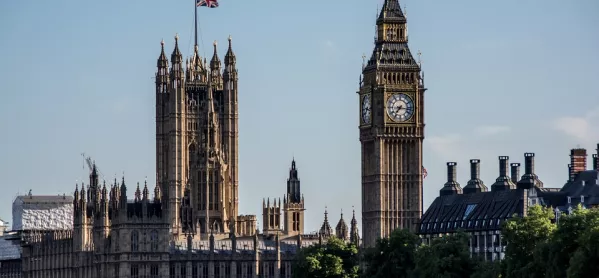- Home
- ‘Let’s move the Lords - and recentre UK politics’
‘Let’s move the Lords - and recentre UK politics’

Way back in 1999, I gave evidence on behalf of the East Midlands Regional Assembly to the Royal Commission on the Reform of the House of Lords. All three subjects of that sentence need unpacking. Firstly, whilst I am talking about an event in the last millennium, it is topical. Honest.
Second, not many people will even remember the regional assemblies, created by the incoming New Labour government and consisting essentially, in the East Midlands, of a partnership between local government and civil society. I was vice-chair, having been elected by the NGOs making up a third of the 100-strong assembly. Third, the Royal Commission led by Lord Wakeham was established on the back of the Labour manifesto commitment to reform and publish a report in 2000.
Our main proposition was that the regions of England (as well as the devolved nations) deserved a voice in a reformed upper house and that the regional assemblies were ideal parts of the infrastructure to support that. History will show that the commission’s recommendations were not implemented but the report is worth a look, given the musings and ideas now emerging from the new government, and in particular from Dominic Cummings.
Opinion: How colleges can create business innovation hubs
Read more: FE is ‘seriously underfunded’, warn lords
Background: Scrap IfA and create new FE regulator, say lords
Moving the House of Lords
In a video from 2014, Cummings said: “If I got control of No 10... I would bring in people from wherever, make them ministers, whack them in the House of Lords.” Nicky Morgan and Zac Goldsmith might not have come from “wherever’” but they have truly been “whacked in”, so who knows what might come next?
The Royal Commission’s conclusions were less headline-grabbing, but perhaps even more radical. The first recommendation was that “the new second chamber should have the capacity to offer counsel from a range of sources. It should be broadly representative of society in the United Kingdom at the beginning of the 21st century… . It should give the United Kingdom’s constituent nations and regions, for the first time, a formally constituted voice in the Westminster Parliament”.
In a government so keen to honour the voters in the North and Midlands, there may be some attraction in a newly constituted House of Lords with representation from across the regions of England, as well as a new place for Northern Ireland, Scotland and Wales. What better way to show that we are truly one nation? Granted, it would take some working through, and would ruffle lots of ermine, but it would also generate debate and engagement, which England has always found so difficult to achieve.
Equally radical is Conservative co-chairman James Cleverly’s idea of moving the House of Lords to York for the duration of the refurbishment of the Houses of Parliament. His motivation is to demonstrate “that we are going to do things differently” following an election in which longstanding political certainties seemed to shift significantly. Moving the chamber, with all the associated disruptions for peers, advisers, administrators and other people, would indeed be symbolically radical. But it might begin to recentre our political landscape away from the Westminster bubble. Such a move could help to amplify English regional and UK devolved nation voices.
The Royal Commission’s report is sitting in the National Archives, all ready to be dusted off. And it’s worth remembering that the commission had a broad-based, cross-party cast including Lord Hurd (Tory ex-foreign secretary), Baroness Dean (the first woman elected to head a major industrial trade union in 1985) , Sir Gerald Kaufman (a minister in the Wilson government in the 1970s) and Bill Morris (first black leader of a trade union in 1992). So come on, Dominic, here’s a radical proposal for you to “whack in” over the next couple of years. Radical, exciting and far-reaching. Any time you want to discuss it, I’m ready. I’m not sure that I’ll find my actual presentation to the commission, but the argument will once again be easy to make.
David Hughes is chief executive of the Association of Colleges.
Keep reading for just £1 per month
You've reached your limit of free articles this month. Subscribe for £1 per month for three months and get:
- Unlimited access to all Tes magazine content
- Exclusive subscriber-only stories
- Award-winning email newsletters



